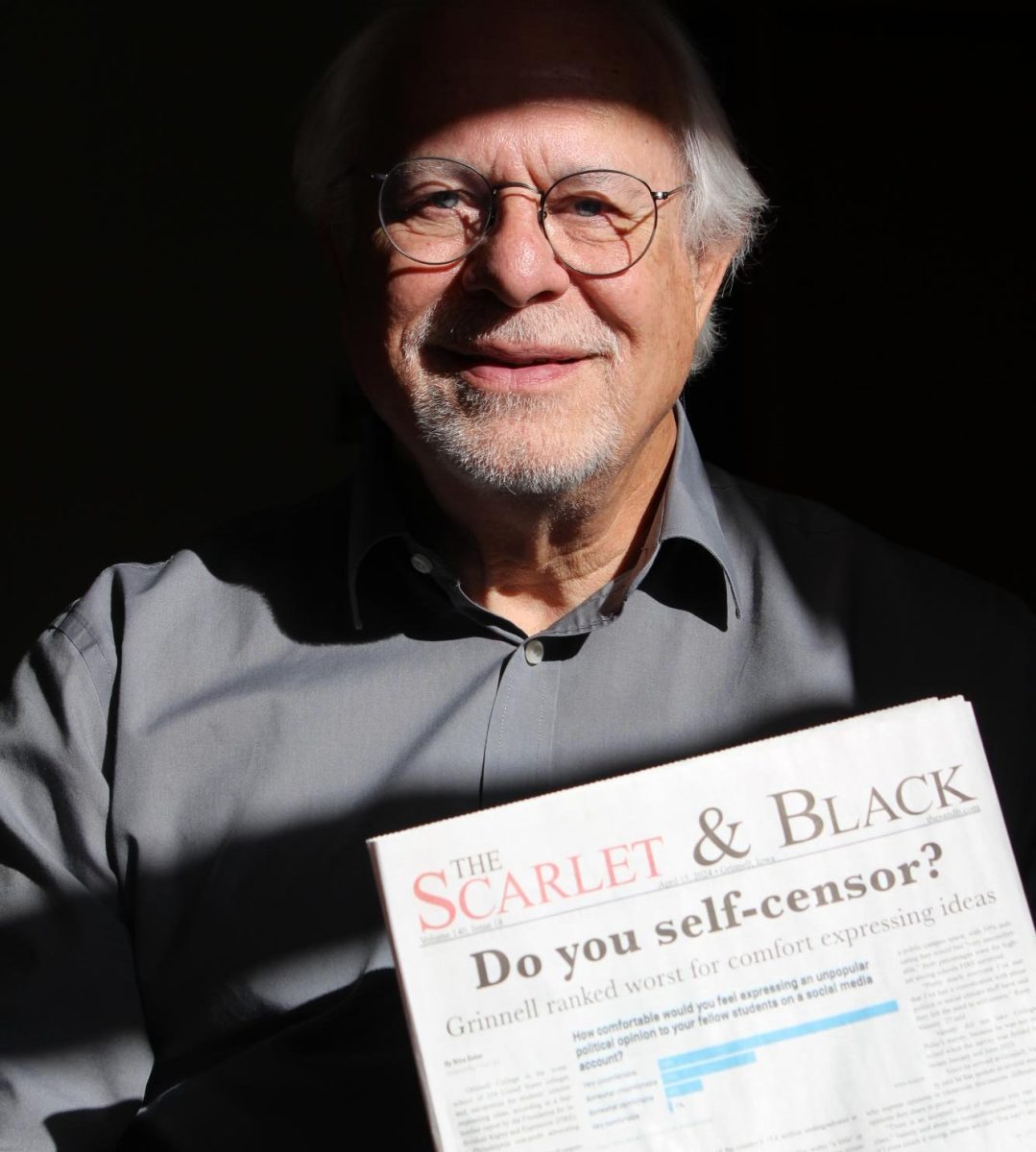You may have noticed that the price of gas here in our little town of Grinnell has increased greatly in the past few weeks. This is not a local phenomenon but instead representative of both national and international trendin rising gas prices. In the U.S. the cost of a gallon of gas has increased 55 cents in the last week alone and prices in the U.K. have also hit record highs, currently standing at a whopping $7.58 a gallon.
One major contributor to recent price hikes has been Russia’s invasion of Ukraine on February 24. Russia is the world’s third largest exporter of oil and seventh largest exporter of natural gas and since its Russian troops have breached the Ukrainian border, fears have risen that Russian energy products will not be able to make it to market. Even though the U.S. does not rely heavily on Russian energy, with only 8% of U.S. oil consumed originating in Russia, the lack of Russian fuel products constricts the market, heightening prices globally.
Here in the U.S. the effect of raising gas prices can monumentally impact low-income families and small businesses. Although everyone pays the same in gas, it is these individuals who spend a much greater percentage of their earnings on transportation costs tied to gas prices and are therefore hit harder by gas hikes.
Given this increase and the squeeze it puts on those already under economic stress, what are possible solutions to stabilize gas prices and alleviate this economic issue?
One idea would be to increase natural gas and oil output from sources outside of Russia. By increasing the amount of non-Russian oil outputs, the supply of globally available oil should return to pre-invasion levels and prices should return to similar benchmarks.
While this may sound like a simple, practical solution, it has three key failings. First, the U.S. has the option to increase drilling domestically, however this comes with a whole host of problems. For one, much of the drilling that could be done is in the Arctic and could result in massive environmental degradation in especially sensitive climates.
Second, increasing drilling also likely means increasing fracking and all the downsides that come with it, including pollution of air and drinking water.
Third, the U.S. is currently operating near its full production capacity, which means any meaningful increase in supply will entail an increase in drilling. Beginning the process of drilling now will provide almost no short-term relief as it will take time for oil products from these wells to hit the market.
A more immediate solution would be for other countries, particularly those with currently unused oil production capacity, to step up their production. Such instincts have already prompted U.S. diplomatic overtures to Saudi Arabia, Venezuela and Iran, calling for an increase in output. These countries are all currently under non-democratic regimes, a trait common to seven of the world’s top ten oil-producing states.
Reliance on foreign prediction then cannot be a long-term solution. For one, many of these regimes, including Iran and Saudi Arabia, have closer economic ties with Russia than with the U.S. and have little reason to go heed American calls for increased production. On another level, even if these countries accede to current U.S. overtures, there is no reason to believe they will uphold U.S. interests in future crises. In short, long-term reliance on the world’s other top oil producers is not a viable option.
Thus, there is no easy way out for the U.S. in this crisis. Either we must bite the bullet and incur environmental damage or put our faith in unreliable and often ideologically repugnant allies.
While this situation is not good by any standards, the circumstances are even worse in Europe. While the U.S. is the one of world’s largest oil producers and if worse comes to worse can meet its own energy needs, European nations are wholly dependent on importing fossil fuels to keep their economies running.
In the recent past, much of these imported petroleum products have come from Russia. Germany alone imports over one third of its oil and 55% of its natural gas from Russia. This trend is reflected more generally in the EU, which as of 2021 jointly imported 40% of its natural gas from Russia.
This has been a massive bargaining chip in Russia’s favor: As badly as Russia needs to sell its oil to Europe for governmental revenues, Europe needs Russia’s energy imports even more greatly. Such reliance has worked to muffle EU criticism of Russia’s egregious actions and even now, as Russia hits civilian targets in Ukraine and the EU finances arms deals with Zelensky’s government, EU countries are buying massive quantities of Russian energy products. In fact, according to Nobel economist Paul Krugman, even if Germany were to maximize its imports of natural gas from other sources, going cold turkey on Russian gas would require at least a 30% reduction in gas usage — a shift that will be nearly impossible to make in the near term. In short, Europe is reliant on importing fossil fuels and as long as this is the case Europe will remain reliant on Russia.
There are a million reasons to support green energy technologies and other steps to apprehend the climate crisis, but in case you needed another one, here it is … It doesn’t matter how much the U.S. drills. As long as Russia produces oil, Russia will have a say in how much oil is on the market and therefore how much oil costs here in the U.S. I, for one, don’t want Putin to be able to impact how much I pay to drive home nor do I advocate for holding European leaders hostage, unable to properly denounce Putin’s thuggish, draconian regime for fear European economies will come to a grinding halt. The only long-term solution to disempowering Putin on the world stage is to make the world less reliant on fossil fuels. As the late senator John McCain once said, Russia is a gas station masquerading as a country. It’s about time somebody turned off the gas.



































































